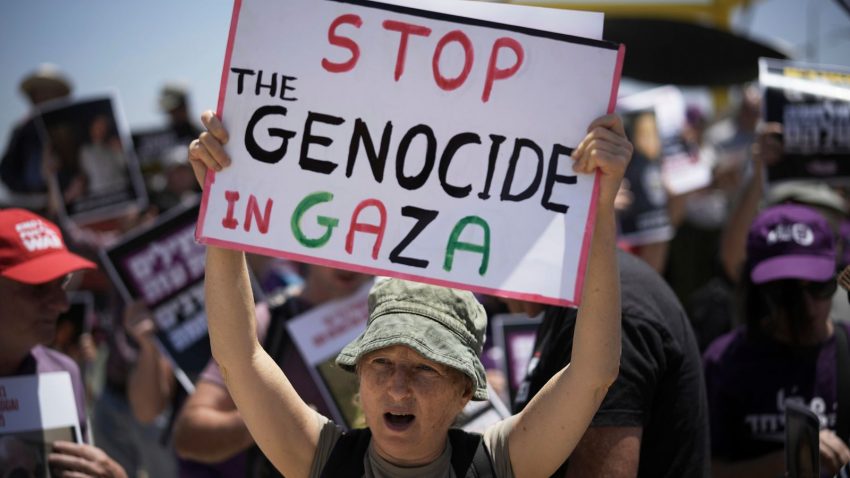The tragic killing of two Israeli diplomats in Washington DC this week adds more emotional layers to an essentially simple disagreement between the Israeli government and some of its most important Western allies who have criticised its latest offensive in Gaza.
What the Western leaders in Britain, France and Canada are saying is that they fully understand Israel’s legal right to respond to Hamas’s atrocity on 7 October 2023 – but they accuse that response of being disproportionate.
More than 53,000 people are reported by the Hamas-led health authority to have been killed by Israeli actions in Gaza.
The Israeli Defence Forces (IDF) claims that it makes the necessary legal calculations on the proportionality of every attack it launches – “is it militarily necessary, is there no better way to achieve the objective, and have we taken all reasonable steps to protect civilians?”
But Israel’s critics in the West worry that if the IDF is really making these calculations, it is operating on so wide a frame of reference as to create meaningless restrictions on its attacks. And the IDF hardly ever produces any evidence to back up its constant assertions that it is, indeed, acting proportionately.
Beyond that, the Western nations and the European Union (EU) are pressuring Israel over its ongoing blockade on food and medicines going into Gaza that has, according to the UN, now brought 500,000 Gazans to the point of starvation.
Israel-Gaza latest: UN sounds alarm over ‘starving’ Gaza
Israel responded on Thursday by allowing about 20% of the daily humanitarian needs into Gaza. It is also about to begin a new food distribution programme in the territory, run by an organisation it is creating – the Gaza Humanitarian Organisation (GHO).
The GHO will be run by private companies contracted by the Israeli government to distribute food at four centres in Gaza, mainly, it is reported, in the south of the strip around al Mawasi.
The IDF will provide security around those centres.
Read more:
British doctor in Gaza describes horror
Shooting suspect ‘fired repeatedly after victims hit the ground’
The UN has refused to cooperate with this policy, partly on the grounds they think it unworkable, and that the GHO cannot possibly perform such a complex role properly.
But chiefly, the UN opposes it because officials claim that the “weaponisation” of food supplies is designed to move the Gazan population from the north of the strip into a small corner of the southeast.
Instead of moving food to starving people, UN officials say, Israeli policy is to make starving people move to the food. If that proves to be a device for “ethnic cleansing”, then the UN refuses to cooperate and risk becoming complicit in what would be an overt war crime.
So, the stand-off goes on between Israel and many of its Western allies, between Israel and the UN, and even within the Israeli government itself, between moderates and ultra hard-liners.
And more than two million people rattle around inside a tiny territory from which they cannot escape and within which a war, now in its 20th month, goes into yet another phase.



